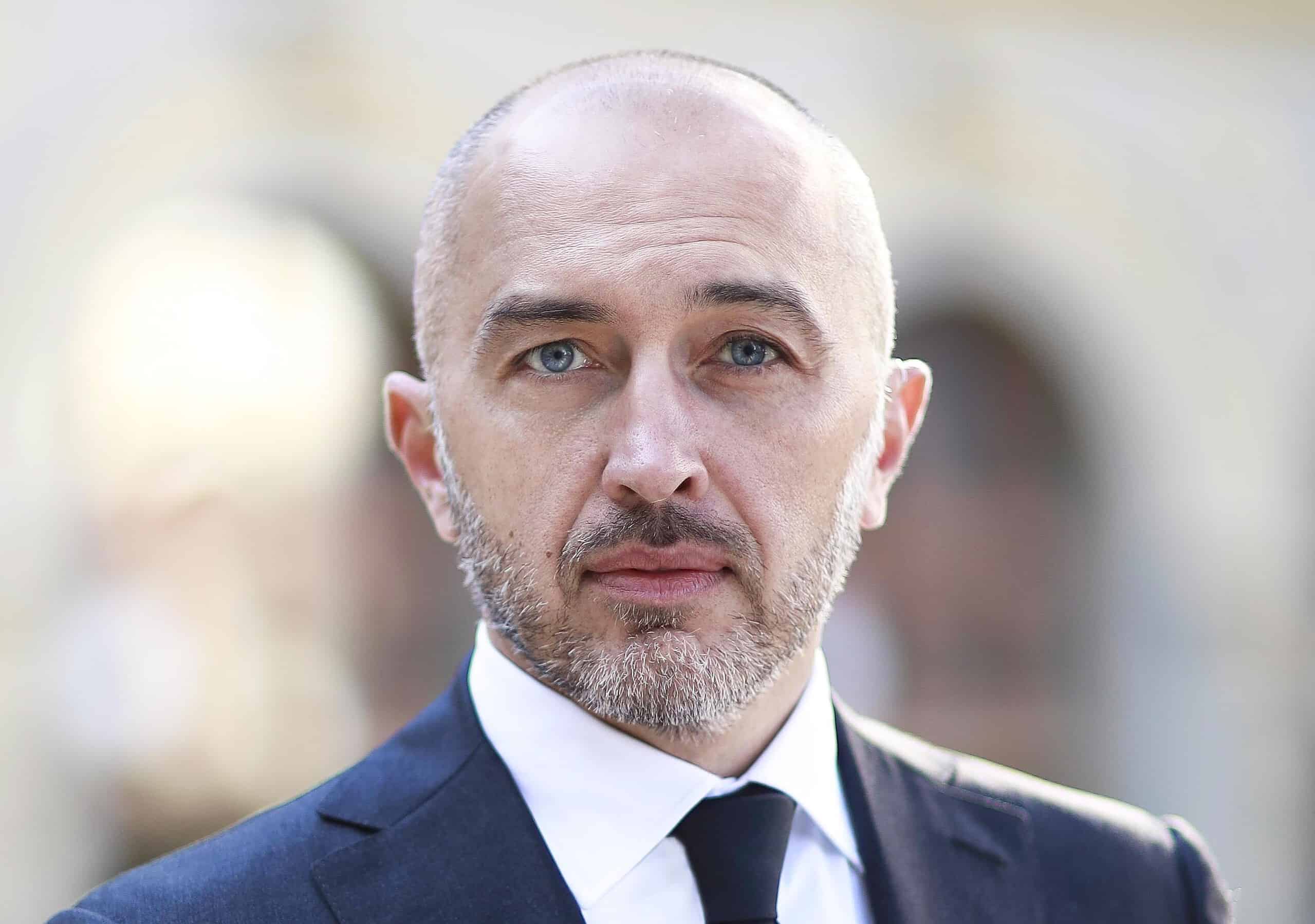Andriy Pyshnyy, governor of the National Bank of Ukraine, discusses the difficulties of being a central bank governor during wartime and what lies ahead for Ukraine.

Global Finance: You will have been governor in October for a year. What have been your biggest challenges over this time? Is the job very different from what you anticipated?
Andriy Pyshnyy: When I took office, Russia launched its first missile attack against Ukraine’s energy infrastructure. I had realistic expectations. I knew I had to run one of the state’s key institutions with a mission to ensure price and financial stability, no matter what. Hence, my main tasks. The first was to ensure the smooth operation of the banking system and macro-financial stability amid missile attacks. Russia has launched more than 6,500 rockets and 3,500 drones at Ukraine. With pride and gratitude for all involved, I can say that in those conditions, we ensured the banking system’s business continuity, exchange rate sustainability, and a sharp drop in inflation.
Second, we had to stop “printing” money to fund the budget. By cooperating with the Ministry of Finance, we have already managed to revive the domestic debt market. Third, we reached an agreement with the IMF and ensured Ukraine continued to receive international aid. I am grateful to our international partners for their trust and the path we have traveled together.
GF: How difficult is it to be a central banker during wartime? How are your priorities and duties different from those of a governor during peacetime?
Pyshnyy: Amid full-scale war, I have a range of duties that central bankers do not discharge in peacetime. The first need is responding to security risks. The priority is ensuring the workplace is safe and maintaining the NBU team’s morale. Another component is the banking system’s uninterrupted operation. We built effective protocols adjustable to rapidly changing conditions. Another challenge is facilitating the speedy recovery of bank operations in liberated areas. A significant priority is supporting our armed forces.
We now pay more attention to inclusiveness. Ukraine has hundreds of thousands of heroes injured in the war. Somebody with no disabilities is one missile away from being disabled. Everyone should be aware of it. Sanctions are a new area. We take measures in Ukraine and persuade foreign partners to sanction Russia’s financial sector.
Although it seems NBU has no time to pursue its primary mandate—price and financial stability—the opposite is true. New challenges make us more committed to implementing our primary mission.
GF: In July, you embarked on a course of monetary easing, citing lower inflation and foreign exchange pressures, envisaging a return to GDP growth next year. Do you still stand by these assessments?
Pyshnyy: We switched to key policy rate cuts in July without jeopardizing macrofinancial stability. However, wartime risks are substantial. This is why we expect no sharp cuts to the key policy rate. Its dynamics will depend on the situation and the balance of risks.
Regarding factors contributing to economic recovery, the primary driver is the Ukrainian people’s and businesses’ adaptability. Another is the energy system’s resilience, ensured by the selfless work of professionals. Domestic demand—factor three—will continue to revive and drive growth. Factor four is loose fiscal policy.
We expect demand for credit to revive as risks decrease, the key policy rate declines further, and the economy recovers.
GF: What will be the biggest challenges facing Ukraine in the future? And what role can the NBU play in helping Ukraine meet them?
Pyshnyy: The fundamental prerequisite for postwar growth is macroeconomic and financial stability. Military victories can plunge countries into economic meltdown. We should avoid that.
With the government, we are moving towards better, more stable macroeconomic conditions in cooperation with our partners, specifically under the new IMF-supported program.
Apart from raising resources, Ukraine will face the task of ensuring their efficient use in reconstruction. Rebuilding must focus on eight areas. The first two are safety as well as macroeconomic and financial stability. The other six are progress towards EU membership, a lending revival, the return of forced migrants, regional policy, insurance against wartime and political risks, and digital transformation.
We realize that the postwar recovery will be long. We should start preparing now. Discussions are underway. NBU has Ukraine’s most powerful analytical team, and we are looking for global expertise to support us on this path.



